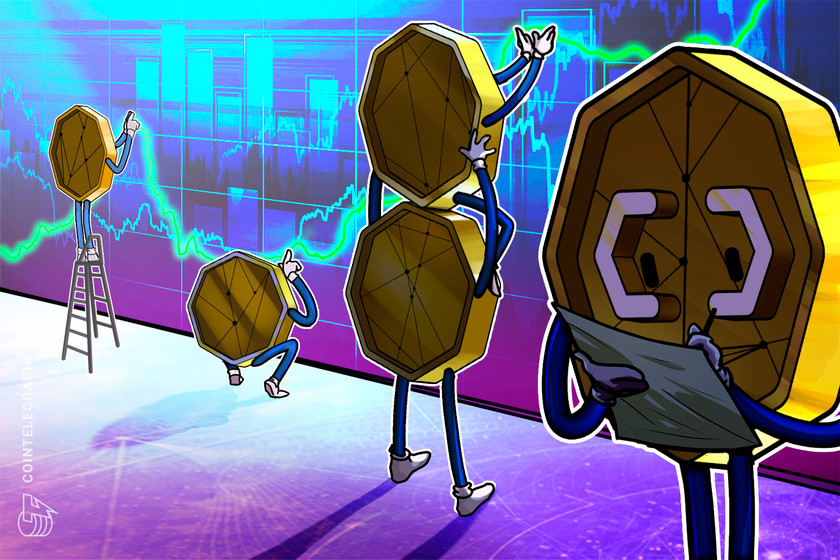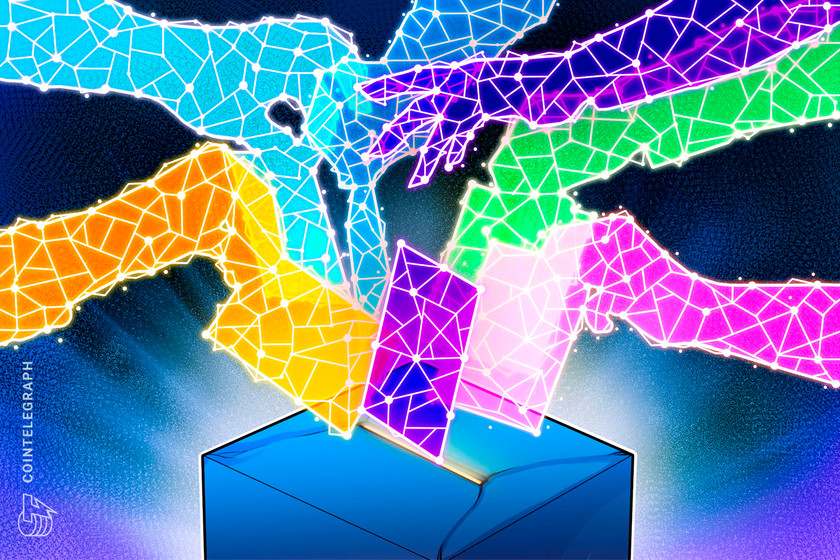DAO treasuries top $25 billion for the first time: DeepDAO


Assets held in DAO treasuries have more than doubled since the beginning of 2023, according to DeepDAO.
Decentralized autonomous organization (DAO) treasuries are rapidly growing, having just surpassed a major milestone, according to DeepDAO.
According to figures from the DAO data platform, on March 31, total assets for all decentralized autonomous organizations reached a record $25.1 billion.
The treasury is the total sum of assets the DAO may use at its own discretion. It excludes DAO-managed but unowned assets such as staking accounts and reward fees.
Around $22 billion of that total is liquid with around $3.5 billion set aside for vesting, according to DeepDAO.
Remarkably, assets in DAO treasuries have more than doubled since the beginning of 2023, which is no mean feat during a bear market.
Eyal Eithcowich, founder of DeepDAO told Cointelegraph, “The first time we aggregated DAO treasuries on DeepDAO the total was $23M, so we’re seeing growth at the scale of a 1000X.”


Furthermore, the figure of $25.1 billion represents around 40% of the total value locked for all of DeFi, as reported by DeFiLlama. This is currently $61.7 billion, having increased by 39% since the beginning of the year.
DeepDAO is a discovery and analytics engine for the DAO ecosystem that lists and analyzes financial and governance data for the fast-growing sector. DeepDAO reports that there are 12,108 DAOs, 2,353 of which are analyzed by the platform.
Related: DAO gets legal recognition in the US as Utah DAO Act passes
Eithcowich said that the big movers are layer 2 DAOs, with infrastructure now the leading category overtaking DeFi.
DeepDAO’s Daniel Bar said that, “For a long while only Uniswap and BitDAO were DAOs that held treasuries if more than $2 billion, but, this past week alone three gianst were added to the DeepDAO organizations ranking board: Arbitrum (over $4B) Optimism (over $5B) and Polygon (over $1B). This marked a point where total DAO treasuries aggregated by DeepDAO crossed $25B”
total value across all DAO treasuries surpassed $25B for first time ever pic.twitter.com/VcymWJOkOy
— Jacquelyn Melinek (@jacqmelinek) March 30, 2023
The Optimism Collective is the leader in terms of treasury funds, with $5.5 billion giving it a market share of 22%. Optimism is the second most popular Ethereum layer-2 solutions provider after Arbitrum One, according to L2beat.
However, Arbitrum has a slightly lower DAO treasury of $4.4 billion giving it a share of 17.5%.
The remaining DAOs comprising the top five are BitDAO, Uniswap and Polygon, with treasuries of $2.6 billion, $2.5 billion, and $1.5 billion respectively.
DeepDAO also reports that the most active DAO over the past week has been PancakeSwap with 66 decisions. The total number of decisions made for all DAOs analyzed over the past month was 3,300, a fall from February’s 3,700 decisions.
Web3 Gamer: Shrapnel wows at GDC, Undead Blocks hot take, Second Trip















